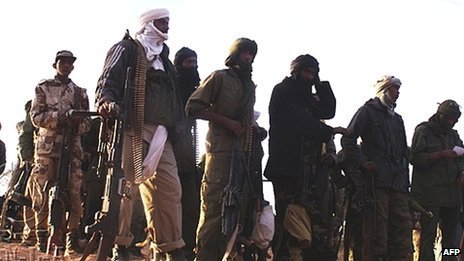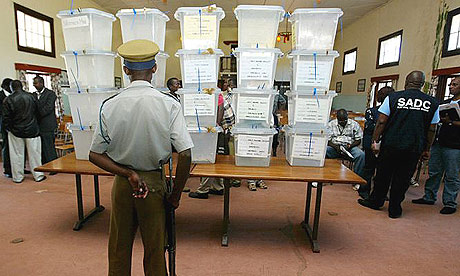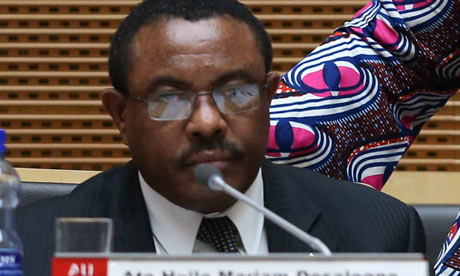By Danielle Gwozdz
Impunity Watch Reporter, Africa
BAMAKO, Mali — Taureg rebels and Mali army soldiers committed abuses against civilians over the past week and a half. Taureg rebels are accused of rounding up and beating members of rival, darker-skinned groups, while Mali army soldiers are accused of torturing Tauregs.

The Tauregs of northern Mali, a mostly light-skinned group, have a history of seeking autonomy from the rest of the country. The Tauregs state they have been discriminated against by the government in Bamako. The Taureg rebels – Taureg National Movement for the Liberation of Azawad (MNLA) – detained about 100 people, most of them darker-skinned men from non-Taureg ethnic groups, and robbed, threatened, and severely beat many of them.
One truck driver told Human Rights Watch that MNLA fighters robbed him of about 300,000 CFA francs ($600 U.S.) and took him to a detention center where he and several others were beaten.
“They hit me with the butts of their guns until I could no longer walk,” the truck driver told HRW, adding that they broke one of his ribs.
Further, the truck driver stated that MNLA told him: “You blacks, Kidal is not for you. It is for us.”
The Malian army also committed abuses against Taureg civilians, including threats to kill them, beating them, and using racial slurs. HRW stated that about 100 black Africans were arrested in Kidal, with many being robbed, beaten, or expelled towards the south.
The Malian army has been conducting patrols and other military operations throughout northern Mali, due to the lack of security forces in this area because of the periodic infiltration by armed Islamic groups.
“The Malian security forces’ human rights record since January is, simply, appalling. They continue to violate human rights with apparently no fear of being held accountable,” said Amnesty researcher Gaëtan Mootoo.
The government seeks to control the town of Kidal before the July elections; however, the MNLA Taureg rebels state that they will continue fighting if the Mali army tries to recapture Kidal. Negotiations for this political stand-off are currently underway.
BBC International Correspondent Mark Doyle states this re-ignited racial tension has been due to the Mali army’s attempt to re-take Kidal and their plans to hold an election in July.
The MNLA took Kidal last year in its attempt to create a Taureg homeland in northern Mali. The MNLA joined forces with al-Qaeda associated fighters and with their help they overran northern Mali. However, the better-armed Islamists soon took control of the Taureg rebels.
The UN is due to deploy a group of 12,600 people as a peacekeeping force before the planned elections in July. This peacekeeping force is to incorporate thousands of West African troops already in the country in support of the French intervention.
For further information, please see:
BBC News — Mali crisis: Human Rights Watch condemns ethnic abuses — 7 June 2013
HUMAN RIGHTS WATCH — Mali: New Abuses by Tuareg Rebels, Soldiers — 7 June 2013
StarAfrica.com — HRW reports new abuses by Tuareg rebels, Mali soldiers — 7 June 2013
Yahoo!News — Malian army fights Tuareg rebels; unofficial truce over — 5 June 2013
Independent Online News — Mali army, rebels accused of rights abuses — 7 June 2013



